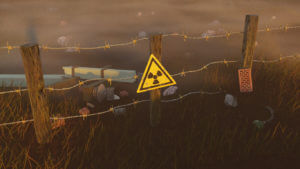The story of the Tularosa Basin Downwinders® is both painful and inspiring. It is the story of a community subjected to tremendous suffering. Yet, it is driven by hope and resilience. These unsung heroes have endured challenges that many cannot fathom. For years, they have battled illnesses caused by radiation exposure without recognition from the
Read MoreCompensation Programs for Radiation Exposure
How to Recognize the Signs of Health Issues Caused by Radiation Exposure
Radiation exposure is an invisible threat that can have serious health effects, such as cancer. If you are an individual who has been exposed to radiation during nuclear tests, understanding the signs and symptoms of radiation-related health issues is crucial. Here is how you can recognize early and late signs of radiation exposure. What is
Read MoreWhat Types of Radiation Exposure Can Lead To Thyroid Cancer?
Radiation exposure is a major concern in today’s world, as it is increasingly becoming a part of our daily lives. While the thought of being exposed to radiation may be frightening, it is important to understand that not all types of radiation are harmful. However, when certain types of radiation reach high levels or if
Read MoreThe Connection Between the Nevada Test Site and Cancer from Radiation Exposure
For many years, the Nevada Test Site (NTS) has been known for developing and testing nuclear weapons in the United States. It is located about 65 miles from Las Vegas and was used for over a thousand nuclear explosions from 1951 to 1992. These tests caused serious damage to the environment and created health problems,
Read MoreHealth Risks from Atmospheric Nuclear Testing
You might have heard about nuclear bombs and the damage they can cause. But did you know that atmospheric nuclear testing of these bombs can also be harmful? Atmospheric nuclear tests are experiments where nuclear bombs are detonated in the air, usually high above the ground. These tests were common in the mid-20th century. In
Read MoreTypes of Cancer Associated with Radiation Exposure: An In-Depth Overview
There is a comprehensive list of cancers caused by radiation exposure which is a concern for many, particularly those living near nuclear facilities or citizens involved with nuclear testing. Here, you can learn more about the types of cancers that have been linked to radiation exposure, and the compensation programs available to help individuals living
Read MoreExplaining the Long-Term Consequences of Atmospheric Nuclear Tests
The dawn of the atomic age brought about a slew of discoveries, opportunities, and, unfortunately, unforeseen challenges. One such challenge arose from atmospheric nuclear tests conducted primarily in the mid-20th century. While these tests were deemed essential for national security, their long-term repercussions on the health of U.S. citizens and the environment remain a haunting
Read MoreSupport for Veterans: Compensation Options for Radiation Exposure
Between 1945 and 1962, the United States conducted nearly 200 atmospheric nuclear weapons development tests in regions such as the Nevada test site and areas of the Pacific and the Atlantic. The tests had a significant impact, with many of the brave men and women involved in the testing program continuing to face the lingering
Read More







 Downwinders® Claims
Downwinders® Claims